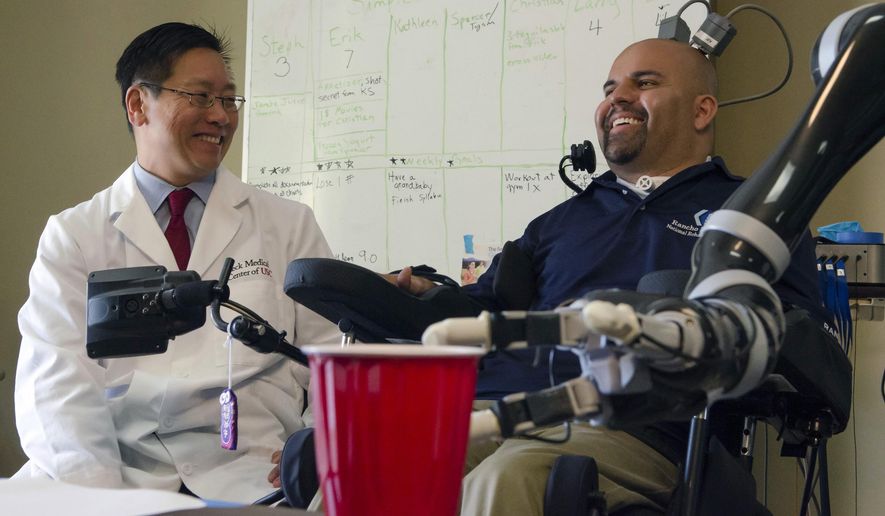OPINION:
The U.S. Defense Advanced Research Projects Agency, also known as DARPA, has spent upwards of $77 million in the last five years to develop technological devices that can restore the minds and memories of victims of traumatic brain injuries.
And by Jove, they’re on to something — though this park may not be all beds of roses once it’s reached full bloom.
The Mayo Clinic, working with Medtronic Plc., recently tested and published findings of a device that monitors the brain’s electrical current and determines the strength of the memories that are being generated. If the electrical current down memory lane doesn’t seem strong enough — if the memory seems as if it isn’t receiving enough electricity to withstand time — the device gives a tiny zap.
The signal is strengthened.
Researchers found the Mayo device regularly boosted the memories of human test subjects, who were given before-after word recall quizzes, between 15% and 18%.
Another recent study conducted by Wake Forest Baptist Medical Center and University of Southern California officials reported even higher memory retention with this Mayo device — in the arena of 37% — after they focused on finding the “code” of “unique memories” and using patterns and pictures to prompt these codes when the brain activities of test patients seemed to fizzle.
So far, these findings only apply to patients with epilepsy — the only humans who’ve been used in the tests. But federal approval for expanding the patient base is soon coming.
The technology world is buzzing to compete. So, too, a host of other interests.
Brain chipping to enhance mental acumen isn’t just Big Tech. It’s Big Government, Big Medical, Big Corporate, Big Military, Big Science. National Security, even.
First come the tiny, barely intrusive and inarguably beneficial electrical implants for epileptics — to those who already have devices inside their heads that track seizures. Then comes the fine-tuning of devices to fit and aide those with tragic brain injuries, with loss of the use of limbs and loss of physical limbs — with the motor skills needed for prosthetics, for instance.
Then come the medical patients with Alzheimer’s, with muscular dystrophy, with schizophrenia, with debilitating effects from sudden strokes and so forth.
And then?
Then come the pushing of boundaries, the ethical dilemmas.
Then come the Clockwork Orange considerations.
After all, if sociopathic behaviors that endanger all of society can be wiped clear with a simple chip to the mind, what’s the harm? Where’s the foul?
Then come the questions of whether it’s fair for a rape victim to suffer the memory. Or for a child traumatized by abuse to deal with the ongoing trauma. Or for a depressed person to have to deal with depression — a lonely person to have to deal with loneliness — a panicky person to have to deal with panic.
Zap, it’s gone.
Zing, it’s cured.
With brain chipping, it’s not the medical benefits to traumatized military heroes that bring ethical dilemmas. It’s where the technological path leads. And we humans — we fallible, short-sighted, Not God humans — have to be careful not to become so enamored with the idea of providing help and comfort and relief that we can’t rein in egos and recognize, some pain simply must be endured.
Some suffering is simply part of the human experience.
Wipe it clear, and what’s left is — nothing.
• Cheryl Chumley can be reached at cchumley@washingtontimes.com or on Twitter, @ckchumley.




Please read our comment policy before commenting.